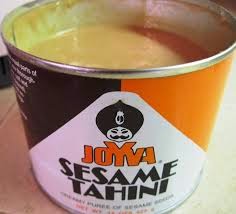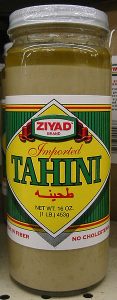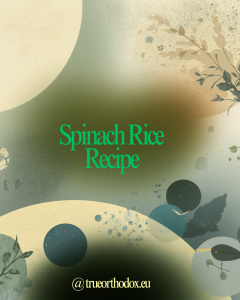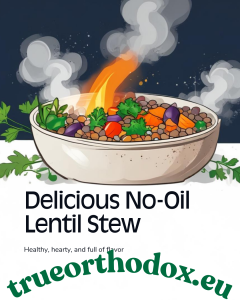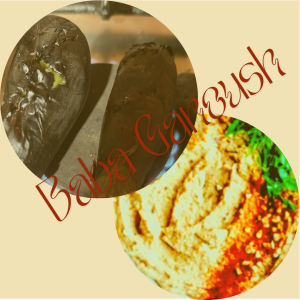Tahini’s Use in Oil-less Foods for Strict Fasting
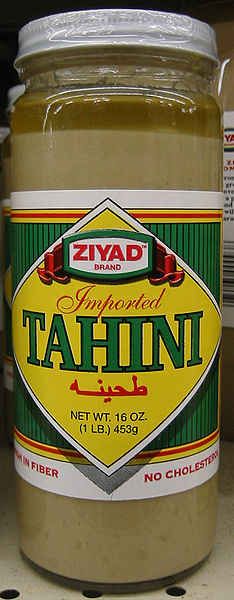
Tahini or Sesame Paste
Tahini or Sesame Paste in Oil-less Food
Orthodoxy is THE Faith of asceticism. Having said that, our fasts are strict!
Especially hard are the no oil days. And they are actually in the majority. Most of our Wednesdays and Fridays are no oil ones except for a couple of weeks in the year and those days that the feast of some celebrated saint happens to fall on that specifies that oil and wine are allowed. And then there are the seemingly endless weekdays of Great Lent.
In Greece, and especially at the monasteries of Greece, we use tahini on these days. Some kind of oil is required in our diet even if this be from eating nuts (which we really do during Great Lent!) Tahini is another way. It kind of makes those oil-less plates into real food and it has always been one of those allowed foods for no oil days.
Tahini is a paste made from sesame seeds. It does not act as an oil (you can’t fry with it or caramelize onions with it) so it won’t feel like you are breaking the no oil fast. It will, however, help to get some foods down our throat and make us feel like we have eaten food.
Tahini can be hulled or unhulled. Of course, the unhulled one is best as it has all its nutritional value. Most vitamins are usually in the hull or peel. The hulled one is whiter and perhaps more pleasing to the eye.
Healthwise, tahini is:
-
rich in minerals such as phosphorus, lecithin, magnesium, potassium and iron.
-
a source of Methionine, which aids in liver detoxification.
-
one of the best sources of calcium.
-
high in vitamin E and vitamins B1, B2, B3, B5 and B15.
-
great for healthy cell growth.
-
an aid against anaemia.
-
an aid to
maintain
healthy skin and muscle tone.
-
20% complete protein, making it a higher protein source than most nuts.
-
is easy for your body to digest because of its high alkaline mineral content, which is great for assisting in weight loss.
10. high in unsaturated fat (good fat!) omega-3 and omega-6.
Tahini might be a little harder to find in the West, but it is available at ethnic and health food stores.
Tahini may be known to us as the main ingredient in halva, a sweet available in the Middle East, Turkey and Greece. It is also very good as a dressing. It is used with mashed chickpeas and garlic to make hummus, a famous Middle Eastern spread. At the monasteries, we make a spread out of it by mixing it with honey (or even jams, preserves or jellies) and putting it on bread (Ughh those fast days during which we search for something…anything…to eat. It is also nice mixed with cacao.
We slowly beat it into our ready to drink coffee for a more filling beverage. We put tahini into a cup and drop by drop beat in the liquid continuously stirring so we don’t “cut” the tahini.

The question now is…how do we use it in our cooked food? In most oil-free foods, I like to use it in this way. We start stirring tahini with lemon juice which whitens it. The lemon juice must be added slowly so the mixture doesn’t “cut” or break up. (A blender really helps in this step). We can add other needed liquids like water or juice from our food at this point if we can’t stir it. We turn down the heat on our finished food in the pot. We then start to slowly stir in a little juice from the pot into the tahini. This must be down slowly again, as tahini will cut and you will be eating pieces of tahini instead of a nice mixture of a tahini sauce. We then put the mixture into the pot. I like to give it another boil and voila we are ready.


